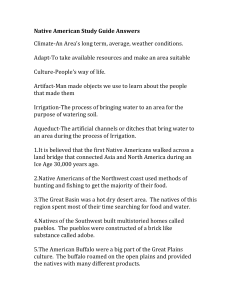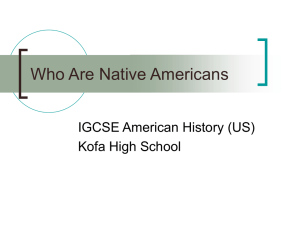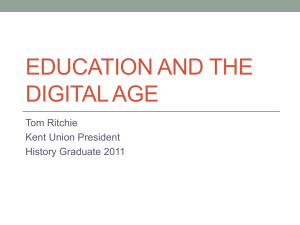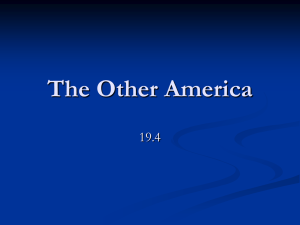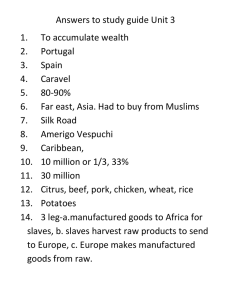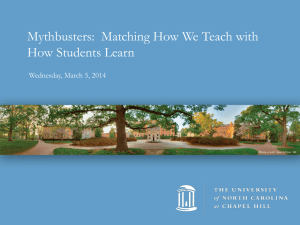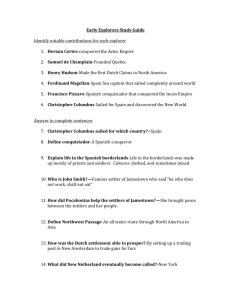Chapter 16 Video Guide
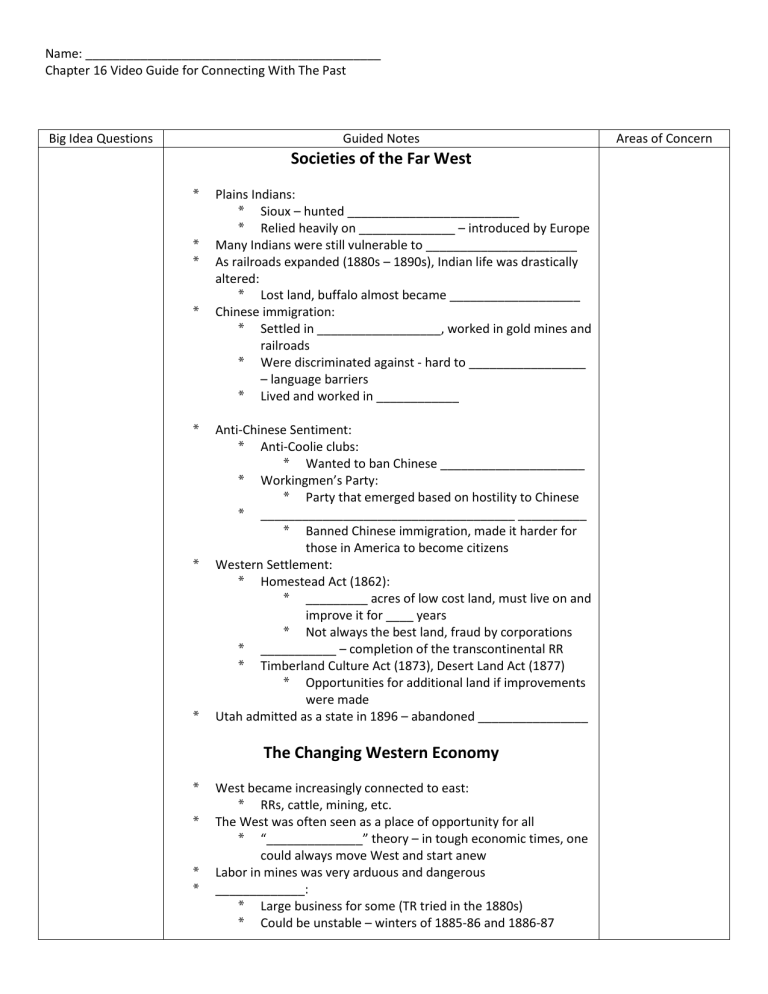
Name: ___________________________________________
Chapter 16 Video Guide for Connecting With The Past
Big Idea Questions Guided Notes
Societies of the Far West
* Plains Indians:
* Sioux – hunted _________________________
* Relied heavily on ______________ – introduced by Europe
* Many Indians were still vulnerable to ______________________
* As railroads expanded (1880s – 1890s), Indian life was drastically altered:
* Lost land, buffalo almost became ___________________
* Chinese immigration:
* Settled in __________________, worked in gold mines and railroads
* Were discriminated against - hard to _________________
– language barriers
* Lived and worked in ____________
* Anti-Chinese Sentiment:
* Anti-Coolie clubs:
* Wanted to ban Chinese _____________________
* Workingmen’s Party:
* Party that emerged based on hostility to Chinese
* _____________________________________ __________
* Banned Chinese immigration, made it harder for those in America to become citizens
* Western Settlement:
* Homestead Act (1862):
* _________ acres of low cost land, must live on and improve it for ____ years
* Not always the best land, fraud by corporations
* ___________ – completion of the transcontinental RR
* Timberland Culture Act (1873), Desert Land Act (1877)
* Opportunities for additional land if improvements were made
* Utah admitted as a state in 1896 – abandoned ________________
The Changing Western Economy
* West became increasingly connected to east:
* RRs, cattle, mining, etc.
* The West was often seen as a place of opportunity for all
* “______________” theory – in tough economic times, one could always move West and start anew
* Labor in mines was very arduous and dangerous
* _____________:
* Large business for some (TR tried in the 1880s)
* Could be unstable – winters of 1885-86 and 1886-87
Areas of Concern
* Women’s suffrage was higher in the West than East:
* ______________________ was the first state to guarantee women’s suffrage
The Romance of the West
* Rocky Mountain School
* Similar to ***________________________________****
- painted ________________________
* Why was the West so appealing?
* The Virginian - romanticized the cowboy
* West was seen as the last frontier
* ***_____________________________________________***:
* The Significance of the Frontier in American History
* Frontier ended in __________ (used census data)
* Frontier gave America a unique identity, promoted
________________________
The Dispersal of the Tribes
* ***Helen Hunt Jackson***
* A Century of Dishonor – ____________________________
________________________________________________
_ ______________________________________________
_______________________________________________
* During and after Civil War, conflicts increased between government and Natives
* Indian Peace Commission:
* Recommended to move Plains Indians to reservations in
Oklahoma and the __________________
* Bureau of Indian Affairs:
* Created to distribute land and supplies; not very successful
* Buffalo:
* Almost became extinct – RR companies, “Buffalo Bill Cody”
Conflicts with Native Americans
* Sand Creek Massacre:
* 133 Natives were killed, 105 were women and children
* “_______________________________”
* California, 5,000 Natives were massacred between 1850 -
1880
* 150,000 Natives in CA prior to Civil War, 30,000 in 1870
* Battle of Little Bighorn (__________________________________):
* George Custard and 264 members of regiment were killed
* Nez Percé
* Chief Joseph urged members to flee, almost made it to
Canada
* ***____________________________***
* Ritual that believed ___________________ would return and whites would leave Natives alone
* Government wanted to end the Dance
* ***Wounded Knee*** 1890
* Fighting between soldiers and Natives in South Dakota
* 40 soldiers, ___________ Natives were killed (many women and children)
* ***___________________________***
* Purpose was to *** _______________________ *** or
“Americanize” Natives
* Eliminated tribal lands, provided __________ acres of land for individuals
* Some children sent to boarding school
* Promoted Christianity
The Rise and Decline of the Western Farmer
* 1862, Congress authorized and subsidized transcontinental routes
* 1869 – met in Utah
* State governments encouraged RR development also:
* Financial aid and land
* RR companies advertised to attract settlement of lands
* Joseph Glidden and I.L. Ellwood:
* Developed and marketed barbed wire – hurt ranches
* Farms produce so much, prices drop, bankrupting some farms
* Farmers’ Grievances:
* RRs – unfair pricing, warehouse facilities
* High interest rates by banks
* Farmers advocated increasing the money supply

